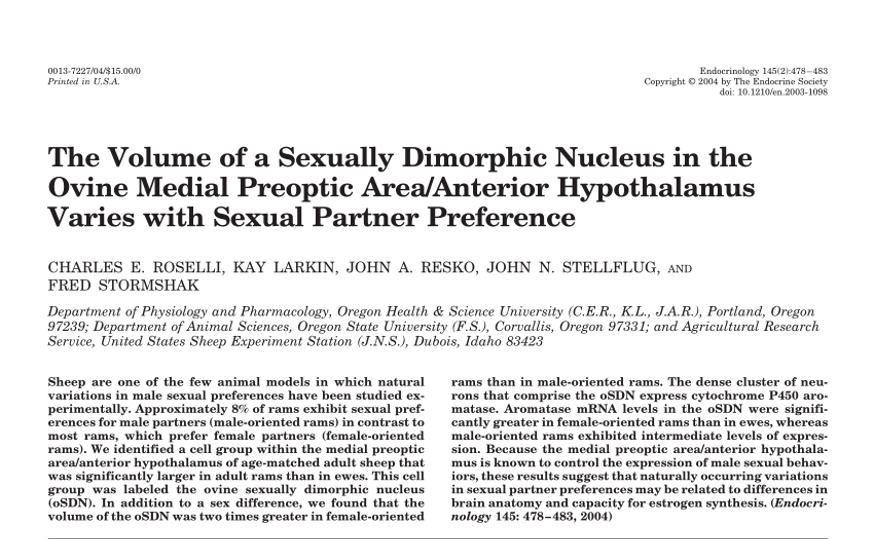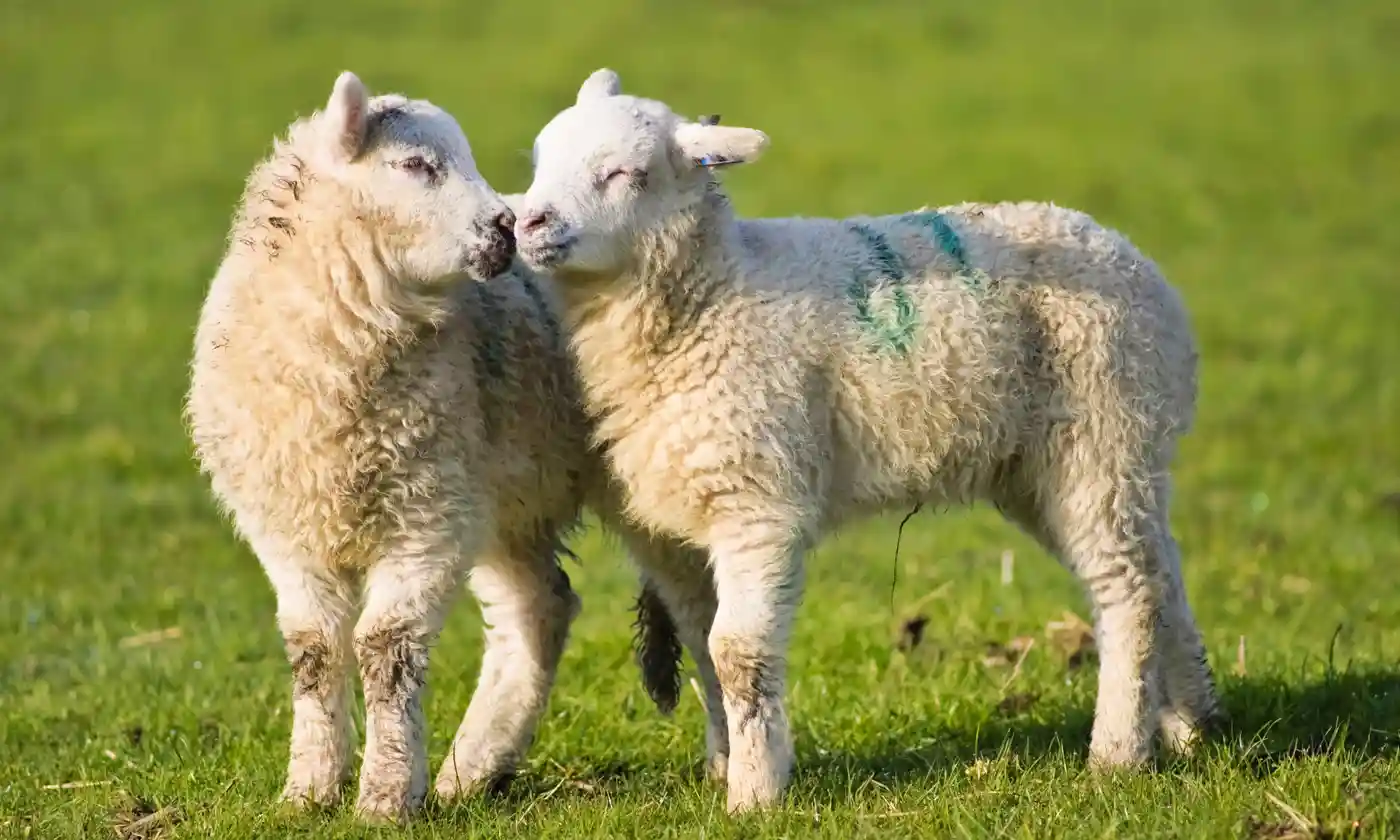By Fanis Michalakis,
Sexual behaviour is a complex phenomenon that many researchers dedicate their lives to studying. The behaviour becomes harder to study as we go to more complicated organisms, like mammals. There are usually mating calls, rituals, offerings, forceful interactions, or just simple exchanges. It is usually the male making the effort to appeal to a female, but there are exceptions where the males choose their partners and so, the females do their best to attract males. Other exceptions include the hermaphrodite species, where sex determination gets complicated, and parthenogenesis, where the entire population are females that produce clones as offspring. But the discovery of those behaviours could never come close to the shock and awe that another discovery caused: Gay sheep.
I can’t find a date that officially stated the discovery, but the controversy began much later. It was discovered that approximately 10% of the male population in sheep was gay, and many researchers had tried to find out more about it. Experiments in sheep showed that castration doesn’t affect their sexual preference, although it can affect their behaviour. The hormones are also, in the same levels in gay and straight sheep, so they are not the ones determining the sexual preference. This led Roselli to the conclusion that the factor causing variations in sexual partners must be in the brain. In 2004 Charles E. Roselli published an article presenting his findings on the brains of gay sheep. His team found by analyzing the brain of 27 sheep that there is a specific location in the brain called “ovine sexually dimorphic nucleus” and discovered that its size was different among the samples. The female-oriented rams (male sheep) had the largest region, the ewes (female sheep) had the smallest and the male-oriented rams had a region of an intermediate size. As a result, there were more neurons in rams than in ewes, and genes were expressed in larger quantities. An important note here is that one brain measurement is not enough to determine the sexual orientation of an individual, especially if we don’t know what affects its development and what it affects on the body. Roselli noted it as well in his research. However, the region of the brain is greatly affected by testosterone levels in the early stages of development. So, Roselli presented his results and analysed them, making sure not to include personal beliefs, or conclusions that did not derive from his findings.

Still, controversy would find him, as the “London Sunday Times” launched an all-out attack on Roselli, claiming that he was trying to find the source of homosexuality and eliminate it by developing a drug that could change the sexual orientation of an individual. The commotion caught the attention of the People for the Ethical Treatment of Animals (PETA) and gay activists, who joined the fight, launching bombs like “sexual eugenics” towards Roselli who did not respond. At the other side of the trenches came the right-wing activists to a rescue that was never needed or warranted. Both sides threw knives at each other viciously, stretching the truth to all directions, focusing more on fear and personal beliefs rather than the findings themselves. Caught in the crossfire, Roselli and his team watched as the events unfolded, but did not get entangled in the situation. After many months, the tide changed. The initial backlash Roselli received subsided as more people understood the research and redirected their attention to PETA and the London Sunday Times. As a result, the initial claims were removed from the media and the situation died out.
There is something to learn from all of this. The media was right to be afraid of what the research might bring in the future, but their fear was misplaced because they assumed Roselli had ill intentions in mind. Still, science can get carried away chasing new discoveries and some might not have the best intentions when conducting their experiments. That being said, when reacting to new information we shouldn’t let fear control us, as we can lose sight of the initial information and fail to understand what the other person is saying. Instead, we should use objectivity and rationality to understand the motives behind one’s actions. One should always be careful when expressing their opinion, as it can greatly affect the public image of others, their opinions, or offend the recipients. We should be careful when discussing sensitive topics, but we shouldn’t shun their discussions.
The gay sheep that Roselli studied may have been a start to potentially understanding sexual preference in mammals, but it became so much more. It raised public awareness of the issue and started a debate that, although misguided, affected the views of many on sexual orientation. It also gave the public an argument that was lost among all the slurs. Sexual orientation is not a choice and the deviations from the norm are not against nature since they exist in other animals as well. And all of this happened because of the gay sheep.
References
- Roselli CE, Larkin K, Resko JA, Stellflug JN, Stormshak F. The volume of a sexually dimorphic nucleus in the ovine medial preoptic area/anterior hypothalamus varies with sexual partner preference. Endocrinology. 2004 Feb;145(2):478-83. doi: 10.1210/en.2003-1098. Epub 2003 Oct 2. PMID: 14525915.
- Ersly, Warren. The Desideratum of Discourse: Lessons Learned from a Gay Sheep. Mercer Street: a collection of essays from the expository writing program. New York University, pg 47-56




